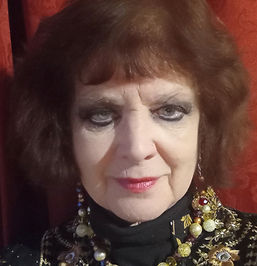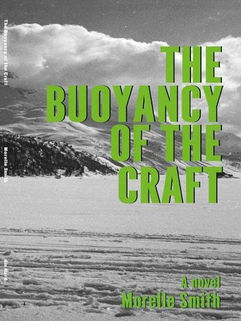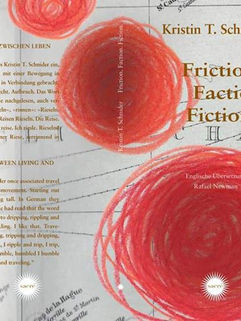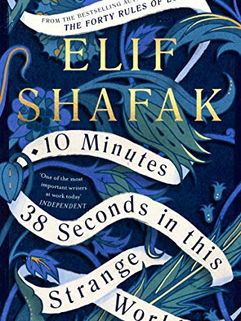
About Books
Still Life
by
Zoe Wicomb
Still Life by Zoe Wicomb is one of those books that you love as well as admire.
It's unique, not easily pigeon-holed - a novel about a historical figure which is not a historical novel; a novel that features the paranormal yet is neither thriller nor mystery; a novel set in the present whose main purpose is to interrogate the past.
Thomas Pringle was a Scottish poet and abolitionist known as the father of South African poetry. Having emigrated to the Cape in 1820 he fell foul of the colonial government and returned to London seven years later, where he became secretary to the Anti-Slavery Society and enabled the publication of the autobiography of Mary Prince, a former slave who revealed the shocking conditions of slaves in the West Indies.
His story is examined rather than told. We don't find out what he actually thought but we question it through three spirit characters - Mary Prince herself, Hinza, Pringle's adopted son - or was he? - and Sir Nicholas Greene, an Elizabethan poet who has materialised previously in Virginia Woolf's Orlando, and who in the end finds the pain of real life too much and returns to the spirit world he came from.
The novel is framed by the figure of a modern day writer who hands over responsibility for examining Thomas Pringle's life to the three characters, itself a neat interrogation of the frequent claim by novelists (other than Vladimir Nabokov) that their characters take over. Here the novelist abdicates responsibility and hands over to the characters.
The device is exquisite, and in Wicomb's hands, profoundly human. Mary and Hinza both had reason to honour Pringle but now, in the light of 21st century thinking, they question his motives, turning over what he said and what he did and doing no more than wondering, was he as fine a person as he seemed?
The innate goodness of Mary and Hinza is deeply touching, as is the late flowering of Sir Nicholas, who moves from superciliousness towards the other two to falling in love with Mary.
I admire this book hugely but I also absolutely love it. I finished it at four in the morning and couldn't sleep, I was buzzing so much, not just at what it said but at its brilliant techniques for saying it. Zoe Wicomb, herself a black woman from the Cape, would be perfectly entitled to rail against colonialism and the way it exploits people for personal gain while appearing to help them, but she eschews anger for this gradual and painful exploration of the flawed nature of even the best of us.
It's a wonderful book by a writer who has been much garlanded (an inaugural winner of one of the world's most prestigious literary prizes, the Windham Campbell Prize) but who is still not widely known outside literary and academic circles. We're lucky to have her here in Scotland. Still Life is a classic.

Zoe Wicomb gained attention in South Africa and internationally with her first book, a collection of inter-related short stories, You Can't Get Lost in Cape Town (1987), set during the apartheid era and partly autobiographical, as the central character is a young woman brought up speaking English in an Afrikaans-speaking "coloured" community in Little Namaqualand, attending the University of the Western Cape, leaving for England, and authoring a collection of short stories. This work has been compared to V. S. Naipaul’s The Enigma of Arrival.
Her second work of fiction, the novel David's Story (2000), is set partly in 1991 toward the close of the apartheid era and explores the role of coloureds and women in the military wing of the ANC, and the challenges of adjustment to the realities of the "New South Africa". The novel has been studied as a key work dealing with the transition period in South Africa along with Disgrace, by J. M. Coetzee and Bitter Fruit by Achmat Dangor.
Playing in the Light, her second novel, released in 2006, is set in mid-1990s Cape Town and tells the story of Marion Campbell, the daughter of a coloured couple who succeeded in passing for white, as she comes to learn their painful story and to reassess her own place in the world of post-apartheid South Africa.
Wicomb's second collection of short stories, The One That Got Away (2008), is set mainly in Cape Town and Glasgow and explores a range of human relationships: marriage, friendships, family ties and relations with servants. Many of the stories—which are often linked to one another—deal with South Africans in Scotland or Scots in South Africa.
Her third novel, October, was published in 2015; its central character, Mercia Murray, returns from Glasgow to Namaqualand to visit her brother and his family and to face the question of what "home" means. The novel explicitly evokes its connection with Marilynne Robinson's Home, the title Wicomb also wanted for her work.
Wicomb prefers nonprofit presses for her fiction, such as The Feminist Press and The New Press. Her short stories have been published in many collections, including Colours of a New Day: Writing for South Africa (edited by Sarah Lefanu and Stephen Hayward; Lawrence & Wishart, 1990) and Daughters of Africa (edited by Margaret Busby; Jonathan Cape, 1992).
To read more about Zoe Wicomb and her work please click here:
https://africasacountry.com/2017/03/the-uncompromising-zoe-wicomb/
http://www.intermix.org.uk/features/FEA_13_zoe_wicomb.asp






















